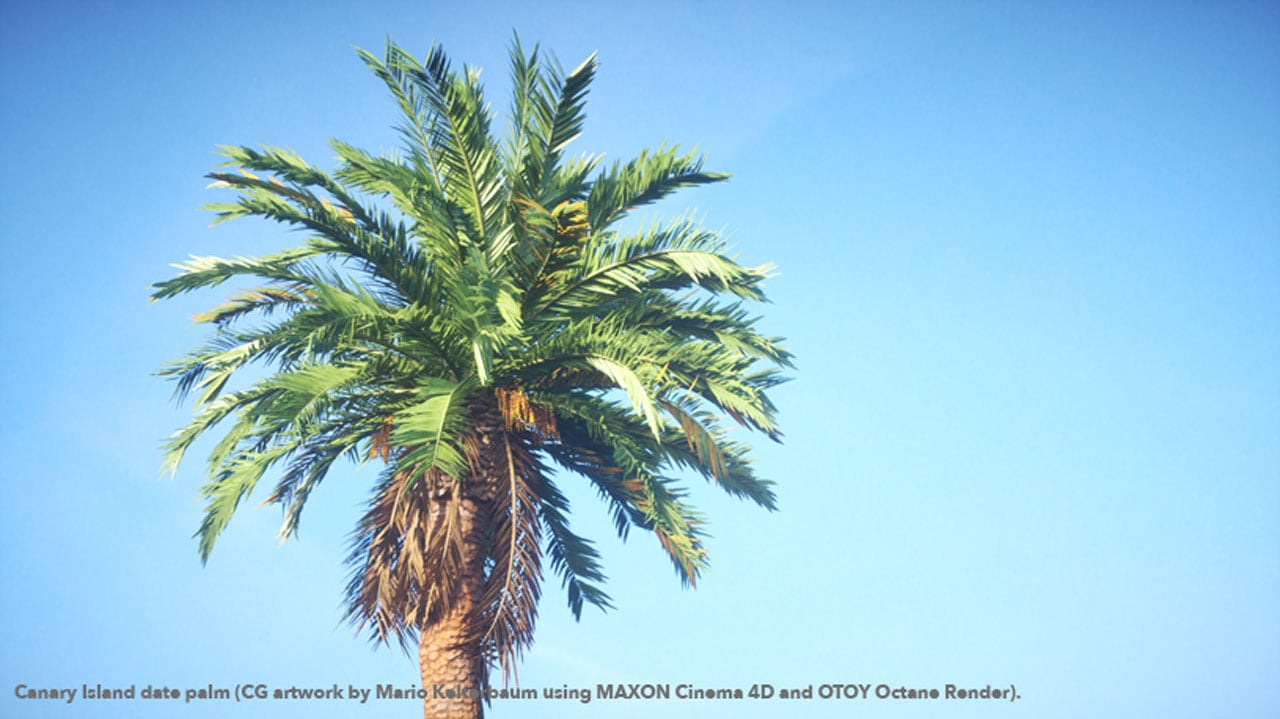v1.0.48 Laubwerk Plants Kit 4 – Subtropical Trees
EDIT in Admin Edit in WP
Downloads
Download demos and trial versions, product documentation, free presets and more.
You may download a free Demo after logging in.
Subtropical Trees
An impressive collection of Mediterranean and other subtropical tree species found across the world, planted along roads, in parks, and gardens including the iconic Mediterranean cypress, fascinating flowering trees such as the Japanese camellia and the world’s most popular palm, the Canary Island date palm.
10 subtropical tree species in 3 variants, 3 ages and 4 seasons each, for architects and CG artists working in 3ds Max, Cinema 4D, or Trimble SketchUp.
3D Plants for CG Artists
Laubwerk offers easy-to-use software extensions for architects and CG artists looking for authentic 3D plants, and plant scattering tools.
With drag-and-drop simplicity, and easy-to-use tools that modify the shape, age, season and level of detail for each of Laubwerk’s stunning 3D plants, users can seamlessly add 3D trees to any CG project. For Autodesk 3ds Max & Maya, MAXON Cinema 4D, Trimble SketchUp, and Python.
Includes 360 Models
All Laubwerk Plants in this Kit come in 36 variations per species, i.e. 3 variants, 3 ages and 4 seasons. Here are a few examples of the variety:
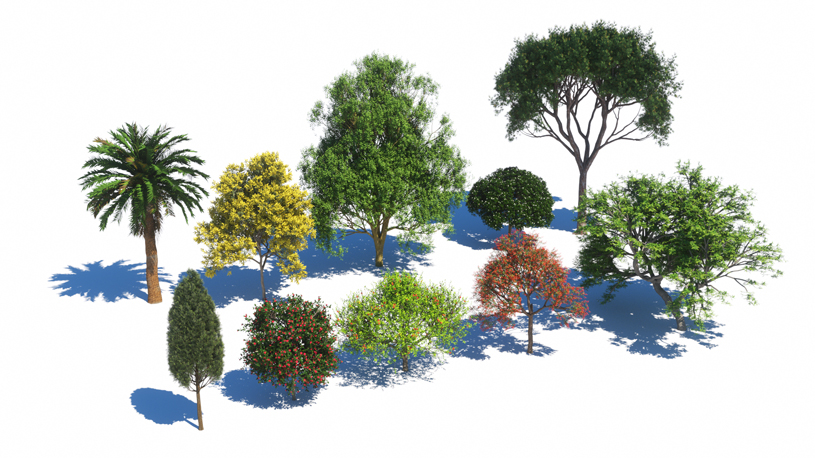
Spring: 10 out of 360 subtropical tree models of Laubwerk Plants Kit 4.

Summer: 10 out of 360 subtropical models of Laubwerk Plants Kit 4.
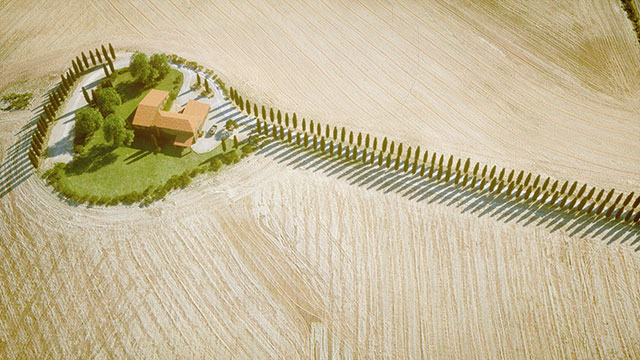
Includes Free Laubwerk Player
The free Laubwerk Player plugin comes bundled with each of the Laubwerk Plants Kits.
Use the Laubwerk Player to easily load and control plant models inside Autodesk 3ds Max & Maya, MAXON Cinema 4D and Trimble SketchUp. Just drag-and-drop your 3D tree, set the shape, age, and season and level of detail control. Watch the lightning fast rendering with inbuilt and 3rd parts renderer support.
Laubwerk Player Plugin
Inserting, controlling and rendering great-looking 3D tree models has never been easier with the Laubwerk Player plugin! The Laubwerk Player provides immediate visual access to your Laubwerk plant library. You get multiple drawing options in the viewport (like simple hull shape or skeleton) for quick feedback and low memory usage while editing your scene. And when you’re satisfied, watch the Laubwerk Player dynamically render fully-detailed plant models at amazing speeds, with automatic default materials and level of detail.
Plant Library Browser
The Plant Library Browser appears right in the 3ds Max, Maya, Cinema 4D or SketchUp main menu and provides direct access to the Laubwerk Plants installed on your computer. Drag-and-drop your 3D tree species into your scene or replace existing trees. Loading the plants through the Plant Library Browser directly creates materials with basic shading and textures preassigned, saving you time and memory while you work.
Plant Object
The Plant Object represents a Laubwerk plant model in your scene by using low-memory hull or skeleton mode for easy placement. It dynamically loads the model’s age and shape that you chose, creating a simple viewport approximation that allows you to apply model alterations and adjust level of detail settings. Laubwerk Plant Objects are fully scriptable using MaxScript.
V-Ray Support
Dedicated support of V-Ray saves you time and memory. Instead of manually converting Laubwerk Plant Objects into V-Ray proxies, the Plant Object detects when V-Ray is used for rendering and dynamically creates the model’s geometry during rendering. This is the exact same process V-Ray uses for V-Ray proxies, just automatically applied without any manual setup.
Renderer Support
Materials and textures are created on the fly – for the built-in renderer or third-party renderers.
- For 3ds Max, Maya, and Cinema 4D: mental ray, iray, Maxwell Render, Thea Render, Arnold, OctaneRender, Corona Renderer and Redshift.
- For SketchUp: V-Ray for SketchUp and Thea Render for SketchUp.
Laubwerk Advantage
- Plug and Play – One-click solution for architects and CG artists who need realistic 3D trees, immediately.
- Fast and Fluent – Render-ready 3D trees minimize the need for finetuning that can otherwise interrupt your workflow.
- Easy and Integrated – Drag-and-drop plants inside 3ds Max & Maya, and MAXON Cinema 4D, or Trimble SketchUp.
- Intuitive – Simple settings are a mouse click away.
- Smart Content – Go beyond static models! Choose the shape, age, season and detail of each tree.
- High Tech – Laubwerk technology minimizes the usual compromise between high-quality graphics and efficient memory usage.
Realistic 3D Tree Models
Laubwerk uses a hybrid of procedural modeling and hand-detailing by botanist and 3D artists to make the most realistic CG trees.
- Render-ready materials and textures are created on the fly – for the built-in renderer (3ds Max, Maya & Cinema 4D), or third-party renderers such as V-Ray, mental ray, iray, Maxwell Render, Thea Render, Arnold, OctaneRender, and Corona Renderer.
- Leaves consist of more than just a single polygon, so they bend and catch highlights.
- Textures are based on high quality photos from real trees.
- Models maintain shape and density, regardless of detail level.
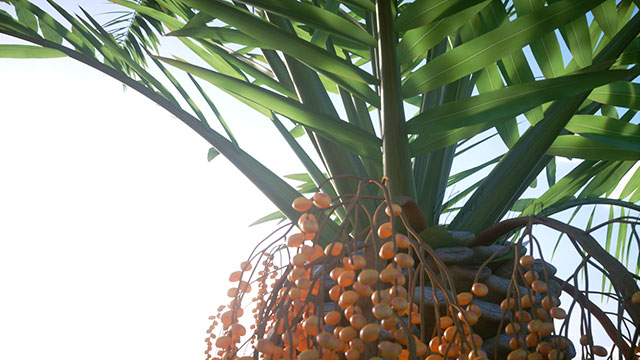
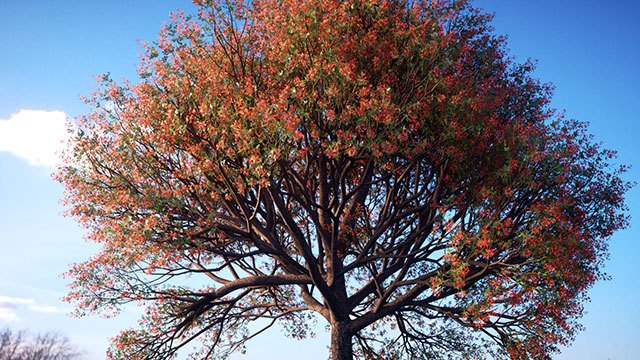
Description
Laubwerk Plants Kit 4 – Subtropical Trees
The following 10 tree species are included in the Plants Kit 4. Each species comes in 36 variations per species, i.e. 3 variants, 3 ages and 4 seasonal aspects, for a total of 360 models per Kit.
 Silver wattle
Silver wattle
Acacia dealbata
Fast growing medium-sized evergreen tree or shrub with wide spreading branches and an overall rounded or pyramidal habit. Fantastic floral display in late winter through early spring. Abundant scented flowers are pale to bright canary yellow pompons, in round clusters arranged in a raceme. Fern-like, bluish-grey-green foliage is alternately arranged on the stems and bi-pinnately compound. Fruit is a green thin and twisted pod, reddish-brown at maturity. Smooth bark is gray to silver-gray or brown. Widely introduced in Mediterranean, warm temperate, and highland tropical landscapes. Royal Horticultural Society’s Award of Garden Merit.
 Persian silk tree
Persian silk tree
Albizia julibrissin
A short tree with a broad crown of level or arching branches. The tree is a popular ornamental tree due to its attractive bipinnate, fern-like leaves and clusters of thread-like pink and white flowers that last throughout the summer. It attracts bees, butterflies and hummingbirds.
 Japanese camellia
Japanese camellia
Camellia japonica
Beautiful small evergreen tree or large shrub grown for it’s magnificent display of fragrant rose-like blooms in late winter to early spring. Flower petals of wild plants are typically deep red with prominent cluster of yellow orange stamens. Fruits are nearly perfectly round before opening, starting out apple green and maturing into a purple-red. Simple elliptical to ovate leaves are deep green, leathery, and very glossy. Leaves are alternately arranged. Bark is of even gray color and smooth. In nature, it is subcanopy tree. It flourishes in shaded or semi-shaded positions, and sheltered in cold climates.
 Orange
Orange
Citrus x sinensis
Small to medium-sized evergreen, flowering tree of compact growing habit. Glossy dark green foliage with oval leaves, alternately arranged. Fragrant small flowers are waxy greenish-white. Round fruits consist of a leathery peel and are green when unripe, then turn bright orange or yellow-orange when ripe. The tree is a hybrid, possibly between pomelo (Citrus maxima) and mandarin (Citrus reticulata), which has been cultivated in China since ancient times. Nowadays, Orange trees have been the most cultivated tree fruit in the world widely grown in tropical and subtropical climates.
 Mediterranean cypress
Mediterranean cypress
Cupressus sempervirens
Medium-sized to large coniferous evergreen tree with a conic, typically very narrow columnar crown. The dark green foliage grows in dense sprays. The seed cones are ovoid or oblong, green at first, maturing brown about 2 years after pollination. The dark green “exclamation mark” tree shape is considered as characteristic signature of Mediterranean landscapes. Trees are very long-lived.
 Cockspur coral tree
Cockspur coral tree
Erythrina crista-galli
Small showy tree or shrub with rounded or umbrella-like spreading shape. Woody trunk with irregular, spiny branches. Deciduous, with trifoliate dark green leaves that turn golden in fall. Big red, fragrant flowers with long blooming and strong flavored nectar that attracts insects. Fruits are brown pods fruiting in summer or autumn. National tree of Argentina and its flower is the national flower of Argentina and Uruguay.
 New Zealand pohutukawa
New Zealand pohutukawa
Metrosideros excelsa
Magnificent large coastal evergreen tree with dome-like spreading shape. The usually multi-trunked tree produces a brilliant display of vibrant crimson color flowers made up of a mass of stamens in summer. Leaves that are a dark greenish blue on top and felted white beneath. The slow-growing but vigorous, easy to grow, and long-living tree even adapts on rocky cliffs. The tree is endemic to New Zealand, where its peak of the bloom is in mid to late December, hence has become an established part of the local Christmas tradition.
 Canary Island date palm
Canary Island date palm
Phoenix canariensis
Large solitary, tree-like palm with a stout trunk and a rounded crown. Long, deep green feather leaves are pinnately divided into many linear segments. Drooping panicles of creamy-yellow flowers are followed by small oval reddish-yellow drupes. Palms are often pruned and trimmed to enhance the appearance; then the bottom of the crown appears to have a pineapple shape. Because of its beauty, adaptability and hardiness is one of the most widely-planted palms on Earth. The palm has gained the Royal Horticultural Society’s Award of Garden Merit.
 Stone pine
Stone pine
Pinus pinea
Attractive coniferous evergreen tree with a majestic broad crown with an almost mushroom like canopy that becomes broader and flatter in maturity. In youth, it is a bushy globe. Large clear trunk with an intense red bark at maturity. Adult needle-like flexible leaves are mid-green and longer than the glaucous blue-green juvenile leaves. The cones are broad and ovoid. The tree has been used and cultivated for their edible pine nuts since prehistoric times. This pine brings a distinctively different form to many landscapes and has gained the Royal Horticultural Society’s Award of Garden Merit.
 Pomegranate
Pomegranate
Punica granatum
Attractive small fruit tree, sometimes a shrub that is much-branched, long-living, and deciduous. The green leaves are opposite, leathery, and glossy. The small, lanceolate leaf is red when sprouting, and turns a characteristic yellow before exfoliation. The flower is bright red, large, prominent and beautiful. The apple-like, edible fruit is at first green, and later basically yellow more or less overlaid with light or deep pink or rich red. The decorative fruit has a tough, leathery rind.
System Requirements
Computer Hardware | A computer that is capable of running your version(s) of 3ds Max, Maya, Cinema 4D, SketchUp. |
|---|---|
Hard Disk Space | 10MB of hard disk space and additional space for the Laubwerk Plants models. |
Supported Hosts |
|
Installation Instructions | Our aim is to make the installation process as easy as possible for you. If you like to get more information, we have compiled these Laubwerk Plants Kits installation instructions, including advanced topics such as considerations when working in a network. |
Change Log
Update 1.0.49 (April 5, 2024)
Update 1.0.48 (December 22, 2023)
Update 1.0.47 (November 15, 2023)
Update 1.0.46 (July 17, 2023)
Update 1.0.45 (June 19, 2023)Maya
3ds Max
Cinema 4D
|
FAQs
Tutorials

A Guide to Realistic Digital Vegetation Creation for 3D Landscapes
Creating immersive, realistic vegetation is an art form in itself. Learn about tools and libraries to help you create realistic vegetation.
More...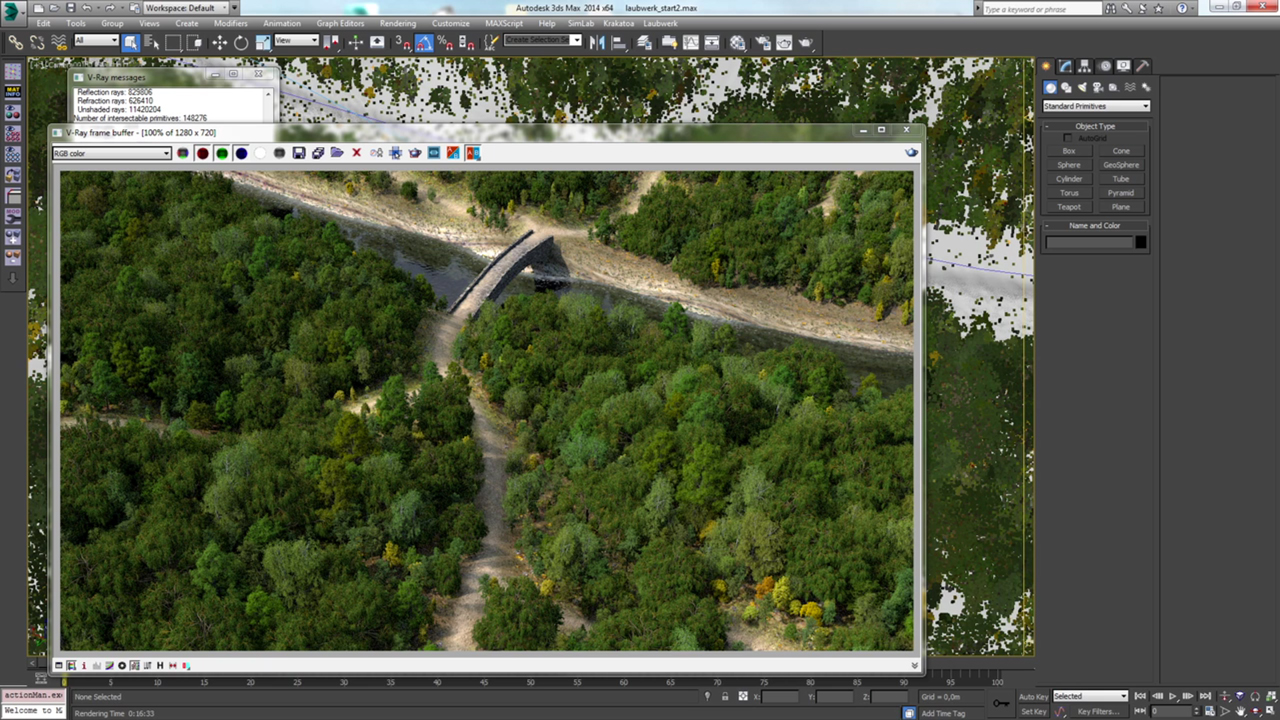
Laubwerk Plants integration with iToo Forest Pack
Learn how to use Forest Pack to instantly create stunning CG forest scenes using Laubwerk's line of beautiful, render-ready 3D tree species, inside Autodesk 3ds Max.
More...